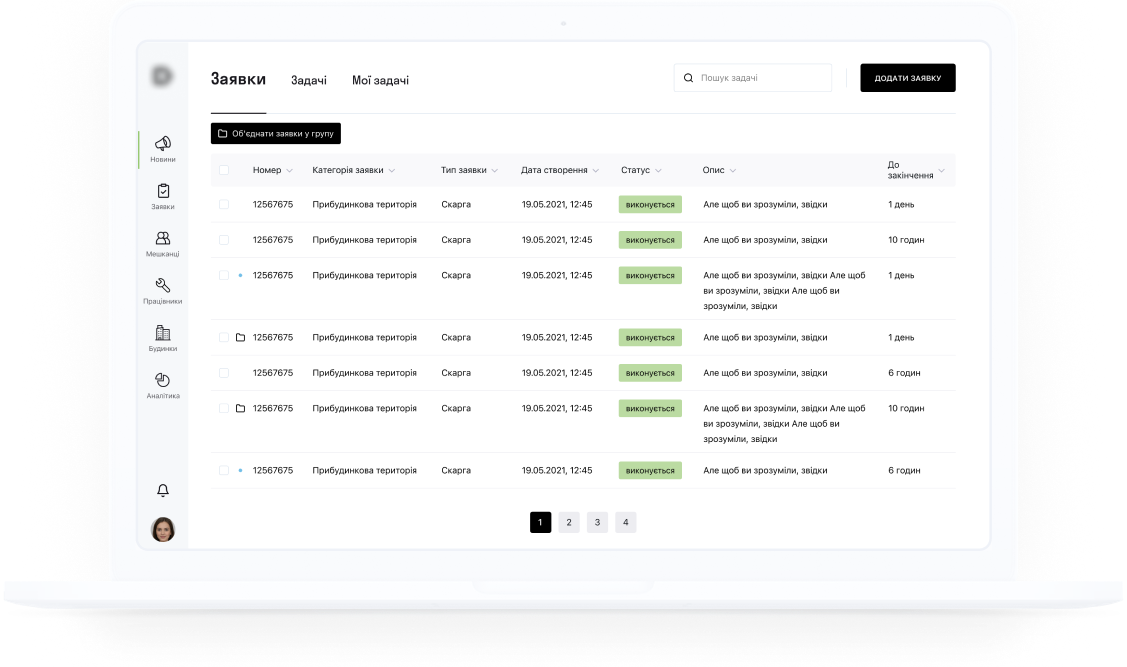Generative AI, also known as GenAI, is a groundbreaking advancement in artificial intelligence. With its ability to generate new content based on training data, GenAI is poised to transform many industries and revolutionize how we approach business and operating models. Its lightning-fast processing speed also means that users can perform a wide range of tasks with unprecedented efficiency.
Although multiple AI-powered text generators exist, ChatGPT has gained significant popularity. It uses a GPT architecture that employs unsupervised machine learning to recognize patterns in data without explicit instructions or labeled examples. The AI model's training process involves powerful algorithms and advanced computer hardware, allowing it to learn from vast internet data.
According to The World Economic Forum, automation will provide several million jobs. This is because automated tools will take over monotonous and hazardous tasks, freeing workers to focus on more complex tasks that result in better products and customer interactions.
However, certain risks associated with automation include a lack of transparency, concerns about accuracy, and the possibility of bias and misinformation. Companies must also factor in the impact of GenAI on challenges like cybersecurity, intellectual property, and fraud prevention.
Despite the risks involved, technology giants are making a significant bet on Generative AI. Microsoft, for instance, has deepened its relationship with OpenAI and invested a whopping $10 billion in a multi-year agreement that provides it with a part-claim on OpenAI's future profits. In exchange for this, Microsoft gets access to the computing power for its Azure cloud network. On top of that, Microsoft is incorporating GenAI technology into its Bing search engine.
Experts predict that the worldwide generative AI in the real estate market will grow dramatically from USD 351.9 million in 2022 to about USD 1,047 million by 2032, with a CAGR (compound annual growth rate) of 11.52% throughout the decade from 2023.
Real estate businesses face a challenging operating environment in which they must attract and retain talent, meet investor demands, keep up with technology trends, and manage costs while scaling assets under management. However, generative AI applied to real estate holds the potential to address these issues and help the industry thrive.
Efficiency Boost through Automation
Real estate businesses get to leverage a wide range of advantages by timely implementing automation. Enhanced efficiency and improved operational performance are some of the key benefits that come with workflow automation.
Real estate firms can streamline their operations by automating crucial tasks such as lead generation, marketing, property management, and customer service. This allows operational teams to focus on delivering better customer service and improved quality. At the same time, sales teams can concentrate on generating more leads, managing deals more effectively, and carrying out successful sales work.
Generative AI in the maintenance and repair process
Typically, the real estate operations team does not carry out any skilled tasks in such situations. Rather, they engage an external service provider to perform the on-site repairs.
The team's primary responsibility is the clerical aspect of the process, which accounts for approximately 80% of their workload: handling maintenance requests, investigating the problem, coordinating with the service provider, communicating with the customer, documenting the repair, managing invoices and payments, etc.
Learn the steps to create a successful real estate crowdfunding platform
Automating even a small portion of this workload would result in significant time savings for the operations team. This would allow them to concentrate on enhancing customer satisfaction, service quality, and other areas that necessitate their specialized expertise.
Property managers and surveyors
It is fascinating to see how much influence generative AI applied to real estate has on management and related tasks.
Technology can bring about a paradigm shift in certain surveying operations. While professions that depend on human interaction, such as management, sales, and organization, may not see significant changes, fields like space analysis, lease administration, and property information could completely transform.
By incorporating Internet of Things (IoT) devices like cameras and sensors, it is possible to generate important data for real estate administration and management. This data, when paired with AI, may be utilized to generate predictive models for future improvement and maintenance.
Builders and architects
In today's world, where there is a lack of skilled workers and a high demand for new construction, AI can offer a much-needed solution.
While human involvement is still necessary for architectural design, AI-powered data capture and utilization can help simplify the process. Automating simple chores is crucial to free up time for more creative tasks. The collaboration between IoT and AI has made it possible to receive critical information that optimizes space usage and accelerates the design process.
This revolutionary technology has transformed how architects work and enabled them to deliver more efficient designs to their clients.
Enhanced Customer Experience through Personalization
The utilization of generative AI in the real estate market has transformed it, providing precise and pertinent information through its AI-powered models.
This advanced technology allows real estate agents and developers to generate authentic photos of properties yet to be constructed, along with property lists, virtual tours, floor plans, and architectural designs. In turn, this can significantly improve sales and marketing efficiency in the real estate industry.
Text generated content
The marketing sector in real estate has been transformed with the introduction of solutions like Jasper.ai. These smart solutions can now generate personalized customer content, including blogs, social media posts, web copy, sales emails, and advertisements. Real estate professionals have quickly adopted these tools, as they offer a fast and efficient way to produce high-quality content about properties.
With Jasper.ai, even new agents and property managers can easily create accurate and engaging content, saving them time and effort that they would otherwise have to spend manually creating.
Case Study: DIM9000

Generative AI image models
Real Estate industry professionals can benefit from GenAI in various ways. It can produce realistic property images and facilitate virtual staging for vacant spaces, urban planning simulations, and accurate property valuation. AI assistants have also improved client experiences and saved time and assets in marketing and sales efforts.
Virtual staging is a fascinating concept that enables property managers to generate realistic images of vacant properties, complete with furniture and decorations. This is particularly beneficial for prospective buyers who wish to envision how a space might appear with various furnishings and decor. It's an excellent method to give them a sense of the possibilities and enable them to make a more informed decision. Moreover, it is much cheaper and faster than traditional staging.
AI-powered photo editing can automatically enhance property photos by brightening the image, removing objects, or adding filters, making them more attractive and professional-looking.
Furthermore, generative AI applied to real estate could help with the following aspects:
1. Virtual tours: Virtual tours of properties before their construction are an exceptional approach for architects and real estate developers to present their designs to potential clients and investors. These virtual tours' immersive and interactive experience is remarkable, surpassing traditional 2D blueprints or renderings and allowing individuals to picture themselves in the space more easily.
2. Design visualization: Visualizing architectural designs in 3D can help architects and developers better understand what the final product will look like, allowing them to make informed design decisions and effectively communicate their ideas to clients and stakeholders.
3. Planning of space: Architects and planners can find immense value in developing interactive 2D and 3D floor plans and space layouts. By experimenting with different designs and arrangements, they can uncover more innovative and efficient ways to use the available space. These tools can be incredibly useful in planning and designing, helping create functional and visually appealing spaces.
4. Tailored content: When looking for a new property, imagining how the space would look with different furniture styles can be challenging. That's why it's helpful to provide personalized content, like virtual tours or images displaying various paint colors or furniture options, to potential buyers. These visualizations allow buyers to better envision themselves in the space, making it easier to determine if the property fits their needs and style preferences.
Chat applications
Chatbots and virtual assistants have been in existence for some time now. However, the latest large language models are bringing about a paradigm shift in conversational AI. These models possess enhanced capabilities in grasping the subtleties of conversation and context, enabling chatbots to offer users a more immersive and rewarding experience.
Let’s turn your challenges into powerful software solutions
The latest advancements in conversational AI will undoubtedly bring about numerous benefits:
- Chatbots can help qualify leads and prioritize which ones to follow up with initially. This allows property managers to allocate their time towards the most promising ones, resulting in more successful sales and satisfied clients.
- Chatbots can address frequently asked questions from potential buyers or renters. Doing so lets you focus on more intricate matters that require your attention.
- Virtual assistants can help renters pay their rent online, report maintenance issues, and get 24/7 support.
- Chatbots and virtual assistants offer property recommendations and mortgage and insurance options.
- A conversational AI can gather customer preferences and behavior data to enhance marketing and customer service strategies.
Real estate CRM systems
Real estate companies deal with a lot of data, including property information and customer data. CRM systems are useful tools that can help manage customer and sales pipeline data. They can also give helpful data and analyses to assist real estate agents in making sound judgments.
However, these systems require manual input, which can be time-consuming for sales and operations teams. An automated workflow can help alleviate this burden by automatically documenting, populating, and updating CRM records. With the help of rules-based logic and conditional steps, a custom workflow can take a customer's data and push it to the CRM or database where their contact record is stored.
This can lead to significant efficiency improvements, especially when onboarding new customers. With an automated workflow, dozens of unique files and customer data points can be automatically stored and updated. This saves time and enhances quality assurance through integrating required information and documentation.
Conclusion
As a property manager, you'll be relieved to learn that generative AI can assist you in analyzing massive amounts of property data, such as past sales records, property features, and market patterns, in offering accurate property appraisals.
You can gain insight into current market trends and property value predictions by utilizing the information provided. Furthermore, cutting-edge AI tools can assist in crafting compelling property listings, generating detailed 3D models and virtual tours, and selecting the most fitting images. On top of that, AI chatbots can assist with client inquiries and give vital information about properties or arrange viewings.
Using a chatbot or virtual assistant powered by machine learning and natural language processing algorithms can aid in the automation of the tracking and categorizing of maintenance requests. Generative AI has simplified property management tasks by automatically producing documents like lease agreements or inspection reports.
Furthermore, generative AI systems can predict maintenance needs and optimize timetables, freeing property managers' time to find the ideal renters.
At Requestum, we specialize in helping real estate businesses take their operations to the next level. We can help you maximize your success and achieve your business objectives by transforming key processes with the latest technology and industry knowledge. By plotting a long-term strategy incorporating GenAI, you'll be poised to transform your organization and stay ahead of the competition.
Ready to innovate and elevate your real estate business with Generative AI? Feel free to contact us today to discuss your needs and explore how we can drive your success!

Our team is dedicated to delivering high-quality services and achieving results that exceed clients' expectations. Let’s discuss how we can help your business succeed.


SHARE: